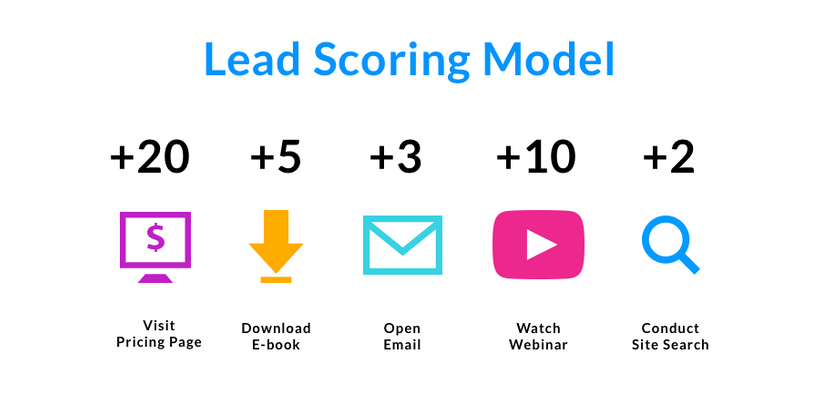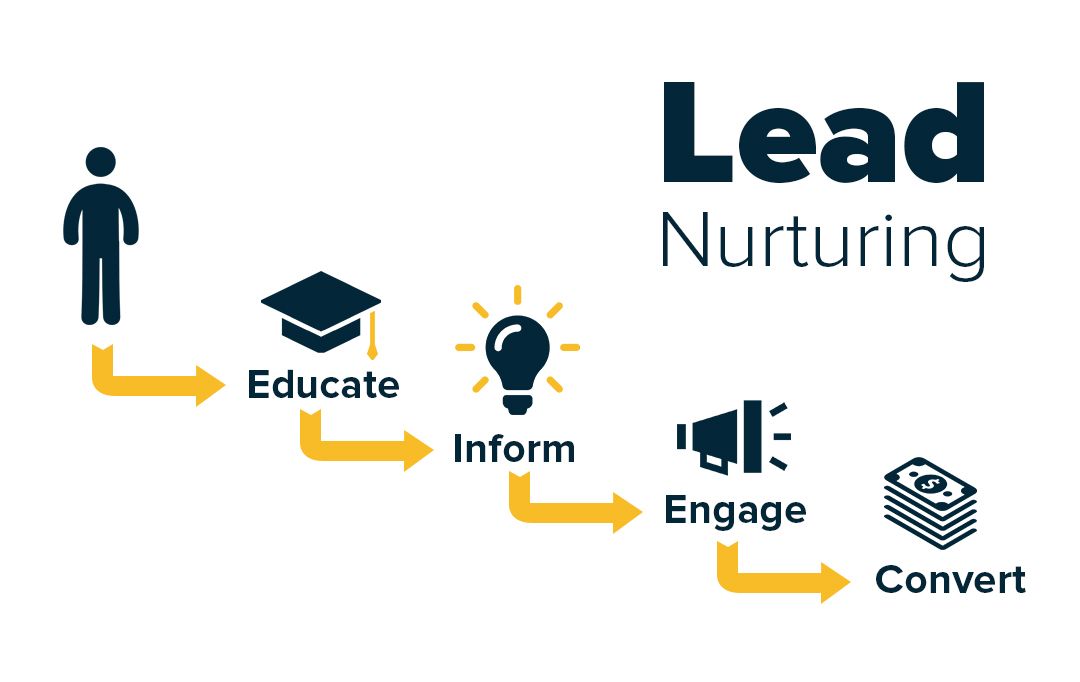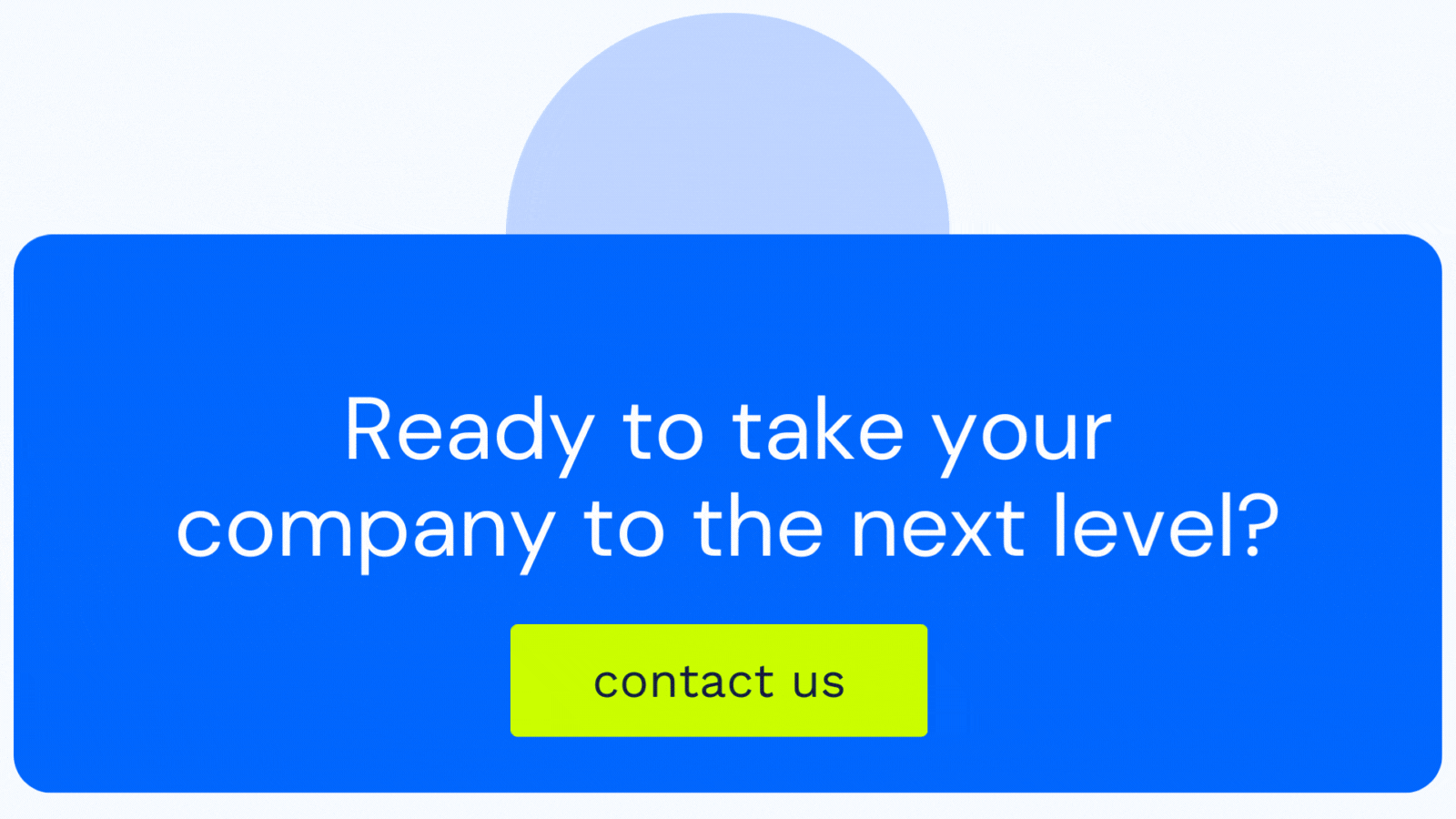Future of marketing: 5 ways AI & HubSpot are transforming the industry
.png?length=320&name=Blog%20Covers%20(27).png)
AI technology is transforming many industries, and modern marketing is no exception. AI is helping marketers streamline processes, make data-driven decisions, and personalize customer experiences.
In this blog, we will explore 5 ways AI is revolutionizing marketing with HubSpot, from automating lead scoring and nurturing to personalizing website experiences and more. Whether you're new to AI or a seasoned pro, this blog will give you insights into how you can leverage AI to take your marketing efforts to the next level.
1. Predictive Lead Scoring

Predictive lead scoring is a technique used to identify which leads are most likely to convert into customers by analyzing their behavior and characteristics. This is typically done using machine learning algorithms, which can analyze large amounts of data and identify patterns that indicate a lead’s likelihood of converting.
The behavior data that can be used to predict lead scores includes website activity such as page views, form submissions, and email interactions. Other characteristics that can be used include demographic information such as job title, company size, and industry.
Once the lead score is determined, it can be used to prioritize leads and target them with specific marketing campaigns, which can increase conversions and improve the efficiency of the sales process.
Predictive lead scoring can also be used to identify leads that are at risk of becoming disengaged and target them with re-engagement campaigns, which can help prevent them from becoming lost opportunities.
Overall, predictive lead scoring is a powerful tool for identifying and targeting the most valuable leads, which can help companies improve their marketing and sales efforts and increase their ROI.
AI can analyze a prospect’s behavior on your website, such as the pages they visit and the forms they fill out, to predict which leads are most likely to convert. This information can help your sales team prioritize their follow-up efforts and increase conversions.
2. Chatbots
.png?width=1200&height=628&name=HINT-FBcards%20(5).png)
Integrating AI chatbots into HubSpot allows businesses to take advantage of the platform’s powerful marketing, sales, and service tools to create a more personalized and engaging customer experience.
With HubSpot, businesses can use AI chatbots to:
- Provide 24/7 customer service and support through the HubSpot’s Live Chat and Chatbot features.
- Automate repetitive tasks such as answering frequently asked questions, scheduling appointments, and providing product recommendations using the HubSpot’s chatbot templates and workflows.
- Personalize the customer experience by integrating chatbots with other HubSpot features such as predictive lead scoring, lead nurturing, and email campaigns.
- Track and analyze customer interactions with chatbots to gain insight into customer behavior and improve the performance of marketing and sales efforts.
- Create and manage chatbot conversation flows using HubSpot’s visual conversation builder.
- Integrate chatbots with other tools such as Facebook Messenger, WhatsApp, and Slack to expand the reach of customer service and support.
Overall, integrating AI chatbots into HubSpot allows businesses to use the platform’s powerful tools to create a more personalized and engaging customer experience, improve the efficiency of customer service operations, and gain valuable insights into customer behavior.
3. Personalization
.png?width=1200&height=628&name=HINT-FBcards%20(6).png)
Personalized content AI can be used to personalize the customer experience in HubSpot by analyzing a prospect’s behavior and demographics to deliver tailored content and messaging that is more likely to convert them into a customer.
Here are a few ways that AI can be used to personalize the customer experience in HubSpot:
- Website Personalization: AI can analyze a prospect’s behavior on your website, such as the pages they visit and the forms they fill out, to deliver personalized content and messaging that is more likely to convert them into a customer. This could include personalized product recommendations, tailored calls-to-action, and customized landing pages.
- Email Campaign Personalization: AI can analyze a prospect’s behavior and demographics to tailor email campaigns that are more likely to convert them into a customer. This could include personalized subject lines, content, and sending times.
- Lead Nurturing: AI can analyze a prospect’s behavior and engagement with your content to determine the best time to reach out and what message to use to nurture them into a customer. This can include personalized follow-up emails, targeted content, and tailored calls-to-action.
- Dynamic Content: HubSpot allows you to use dynamic content blocks that can change the content based on the demographics, behavior and history of the visitor. AI algorithms can be used to determine which content block will be more likely to convert a visitor based on their characteristics and deliver that content block to them.
By using AI to personalize the customer experience in HubSpot, businesses can increase engagement and conversions, and improve the customer experience. Additionally, tracking and analyzing customer interactions with personalization can be used to gain insight into customer behavior and improve the performance of marketing and sales efforts.a customer. By tailoring your marketing efforts to the individual, you can increase engagement and conversions.
4. Email Campaign Optimization
.png?width=1200&height=628&name=HINT-FBcards%20(7).png)
Email campaign optimization refers to the process of improving the performance of email marketing campaigns by analyzing data, identifying areas for improvement, and making changes to increase engagement and conversions.
AI can be used to optimize email campaigns by analyzing data from past campaigns, such as open rates, click-through rates, and conversion rates, and identifying patterns that indicate which subject lines, content, and sending times are most effective.
Here are a few ways that AI can be used to optimize email campaigns:
- Subject Line Optimization: AI can analyze data from past campaigns to identify which subject lines are most likely to result in opens, and use that information to create subject lines that are more likely to be successful in future campaigns.
- Content Optimization: AI can analyze data from past campaigns to identify which types of content, such as text, images, or videos, are most likely to result in clicks, and use that information to create content that is more likely to be successful in future campaigns.
- Sending Time Optimization: AI can analyze data from past campaigns to identify which times of day or days of the week are most likely to result in opens and clicks, and use that information to schedule future campaigns for times that are more likely to be successful.
- Segmentation: AI can analyze data from past campaigns to identify patterns in customer behavior and demographics, and use that information to segment your email list, so you can send targeted campaigns to specific groups of customers.
- Automated A/B Testing: AI can run automated A/B tests on different elements of your email campaigns, such as subject lines, calls-to-action, and content, to identify which variations are most effective and use that information to improve future campaigns.
- By using AI to optimize email campaigns, businesses can increase engagement and conversions, and improve the ROI of their email marketing efforts. Additionally, tracking and analyzing customer interactions with email campaign optimization can be used to gain insight into customer behavior and improve the performance of marketing and sales efforts. This can help you improve the performance of your email campaigns, increase conversions, and boost ROI.
5. Lead Nurturing

Lead nurturing refers to the process of building relationships with potential customers, also known as leads, through targeted and personalized communication, with the goal of moving them further down the sales funnel and ultimately converting them into customers.
AI can be used to automate and optimize lead nurturing efforts by analyzing data from past campaigns, such as open rates, click-through rates, and conversion rates, and identifying patterns that indicate which content, messaging, and timing are most effective.
Here are a few ways that AI can be used to optimize lead nurturing:
Personalized Communication: AI can analyze data from past campaigns to identify patterns in customer behavior and demographics, and use that information to create personalized communication that is more likely to be successful in building relationships with leads.
Timing: AI can analyze data from past campaigns to identify patterns in customer behavior and use that information to determine the best time to reach out to leads and what message to use to nurture them into a customer.
Lead Scoring: AI can analyze data from past campaigns to assign scores to leads based on their behavior, demographics, and engagement with your content. This can help you prioritize which leads to focus on and what message to use to nurture them into a customer.
Automated Workflows: AI can be used to automate lead nurturing workflows, such as sending targeted emails and personalized follow-up messages, based on a lead’s behavior and engagement with your content.
Content Optimization: AI can analyze data from past campaigns to identify which types of content are most effective at different stages of the lead nurturing process, and use that information to optimize future campaigns.
By using AI to optimize lead nurturing, businesses can increase engagement and conversions, and improve the ROI of their lead nurturing efforts. Additionally, tracking and analyzing customer interactions with lead nurturing can be used to gain insight into customer behavior and improve the performance of marketing and sales efforts.
In conclusion, AI is becoming an important tool in modern marketing and can be used to improve the customer experience, increase conversions, and boost ROI. With HubSpot, companies can take advantage of the latest AI technologies to better engage with their prospects and customers.
-1.png?width=80&name=Febrero%20INS%20(2)-1.png)
